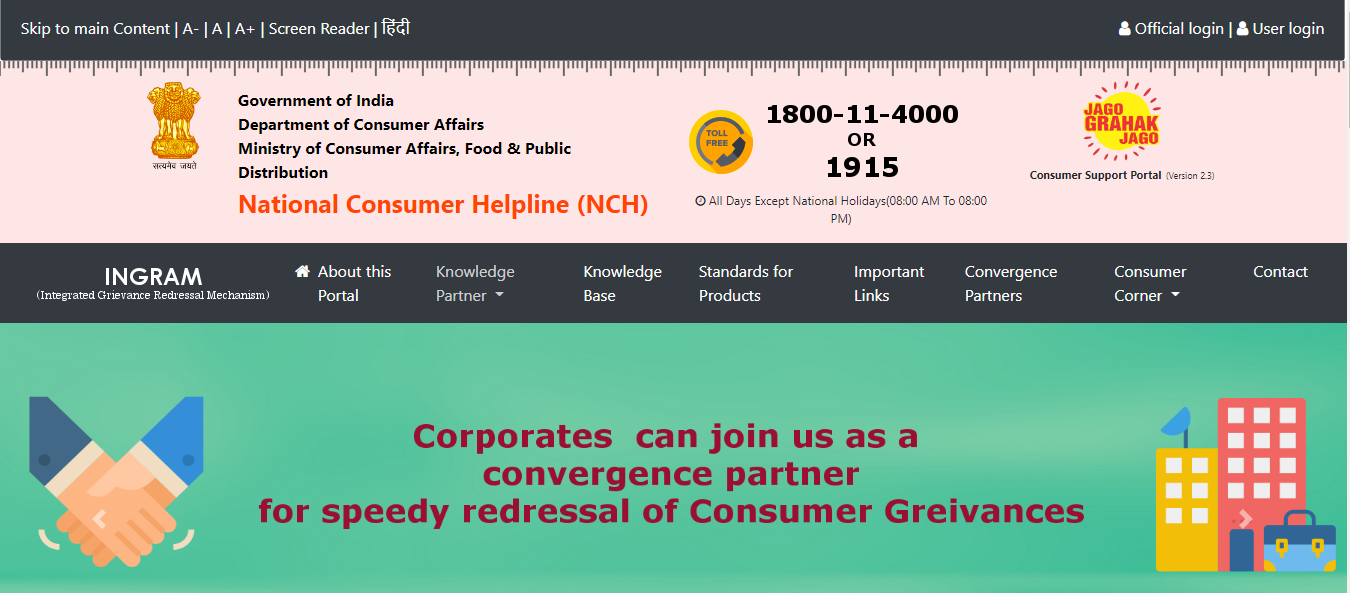Do you want to know the reasonable period to file a case? If yes, then you need to read this blog
A Consumer Court handles complaints and grievance matters involving consumers. Consumers dissatisfied with the seller’s conduct or the quality of the goods or services they receive can take their complaints to a consumer court, which the Indian government established to safeguard their rights as consumers. The following is an in-depth look at registering a legal Notice for a consumer case Consumer Court Online Complaint in India.
Who Can File a Complaint in a Consumer Court?
There are several ways to file a complaint with the Consumer Court:
A buyer of goods and services. What exactly is a “consumer”? If the following conditions are met, a person is a consumer:
- They have paid money for products or services received in exchange for such items or services
- Personal use of the goods is required, not resale or commercial.
- Voluntary consumer association: Any legally recognized group that isn’t governed by the Companies Act of 1956.
- If the federal or state runs it
- One or more customers that have the similar desire
- In circumstances of mortality of a client, his legal person or agent.
Steps to file a complaint in a Consumer Court
Here are the steps to file a Legal Notice for consumer case court
check here to more about: https://consumerhelpline.gov.in/

Step 1: Provide Legal Notice
The first step in any consumer dispute is to submit a legal notice to the accused party before filing a formal court complaint. Everyone victim of unethical commercial operations, such as selling defective goods and products, must file a legal notice for defective goods against those responsible. Legal notice information is sent to determine if the accused is willing to admit their error and compensate the customer for the unjustified damage.
After 30 days, the offended has the right to take the matter to court if the defendant fails to respond to a legal notice within that period, disregards, or refuses to implement the terms established in the information.
Step 2: Identifying the Court’s jurisdiction
First, the consumer must decide the authority of the forum to which the complaint should be presented. The complainant must consider the monetary and geographic jurisdiction of the tribunal.
There is a financial jurisdiction of up to Rs. 10 million for the District Commission, Rs. 10 million to Rs. One hundred million for the state commissions, and more than Rs. One hundred million for the national commission.
The boundaries of the District, State, or National Commission under whose authority the accused resides, runs a business, or has a subsidiary office must be established to determine the extent of the jurisdiction. If more than one person is charged, the jurisdiction might be applied to any of them. The ‘Cause of Action’ might also be found here.
Step 3: Consumer Court Fee
After that, the complainant must pay a regular charge to the District, State, or National Commission, if applicable, to file a complaint.
Step 4: Documentation in Support of the Complaint
All essential facts and proof must be included in the consumer complaint, and the complainant must affix their signature to it. The complaint must include the complainant’s name, address, and characterization of the alleged perpetrator. A valid letter of authorization from the complainant has also required if the complainant transfers power to another individual to file the complaint.
Documents supporting and relevant to the complaint must be included, including a copy of the invoice for the goods or services purchased from the accused, records regarding a warranty or guarantee of goods/services, and copies of the complaint letter and the legal notice served to the accused asking that he rectify the goods he sold or make compensation for.
Finally, an affidavit stating that the facts alleged and evidence offered in the complaint is, in the complainant’s judgment, accurate and factual, must accompany the complaint.
In addition, the complaint must be presented to the forum with a minimum of five copies and additional copies for each accused party.
Step 5: Compensation is sought
There must be a detailed description of what form of compensation or relief is sought by the complainant in the consumer complaint. The consumer complaint must explicitly indicate the cost of compensation or damages suffered by the complainant.
Customers can also claim compensation for the goods/services, the cost of product injury, legal notice fees, additional interest, and a refund of some additional costs. Under several sections, the complainant must provide a full explanation of the compensation sought.
Step 6: Delay and Limitation
A lawsuit must be filed within two years of the date the cause of action first appears. In addition, an appeal to the State Commission must be submitted within 45 days following the District Commission’s decision. Thirty days after a lower court’s ruling, a request can be forwarded to the National Commission for Appeals.
The complainant ensures that the Tribunal understands why the complaint was filed late. Unless the Tribunal is convinced that there was no evil intent, it is impossible to excuse the delay.
Step 7: Final Filing
The complainant, a representative, authorized by a letter of authorization, or a lawyer can respond directly to a customer complaint.
Recipients should keep copies of every correspondence sent via registered mail for their records. The official website also offers the option of filing a complaint online, which is more convenient for the consumer because it saves time. The complaint filing fee must be paid via the online payment gateway provided.
What are the situations in which a complaint can be filed?
Suppose a ‘legal notice‘ has not already been issued to the accused party. In that case, the aggrieved party may only bring a consumer court case if a substitute or value return has already been made available to the accused party. After serving the accused party with a legal notice, but if the accused party refuses to compensate, a consumer lawsuit can be filed:
- Through the use of unethical business practices.
- Trade is restricted as a result of the behavior of the trader
- If the consumer buys or agrees to buy goods with one or more flaws.
- If the customer receives defective services.
- If the vendor has charged the customer more than the net price stipulated by government officials for the products or services, the consumer may have a claim.
- If the goods turn out to be dangerous to the buyer’s health and safety.
- If a law prohibits the sale of a product to the general public, it is illegal.
- When the seller fails to display information about the substance, manner, and effect of the usage of the goods sold. This is a big red flag.
Is there a time limit to file a case in Consumer Court?
Two years from the action, inadequate service, or a product defect to file a notice under the consumer protection act. But if the complainant can prove to the District Forum that there are good reasons for not registering the complaint within the two-year timeframe, the complaint can be submitted. The cause for the delay in submitting should be given and a reasonable explanation.
Conclusion:-
To defend the interests of consumers in a fast-track manner and dissuade traders from engaging in malpractices, dispute settlement and online shopping complaint filing mechanisms for consumer complaints have been designed. If you need any assistance, you can look up Vakilsearch.


